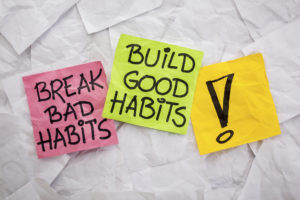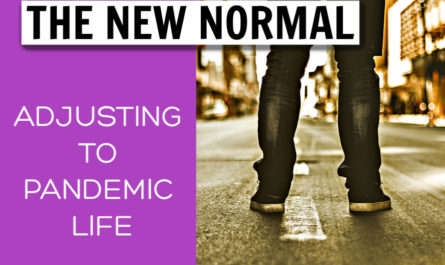Reach for that bagel. Tell myself I’m unlucky. Follow a strict tooth-brushing routine. Judge others by their:
- Intellect
- Weight
- Attractiveness
- Skin color
- Political philosophy
Make the toilet paper come off the roll:
- From over the top
- From underneath
These repeated patterns we exhibit, I believe, are simply manifestations of our Knower/Judger—that “keeper of the rules” we carry around with us that makes getting through the day easier. After all, we don’t have to stop and think about things we already have an answer to, right?
It’s easy to see physical reactions as habits. Like how we brush our teeth. How we mow the lawn. Our favorite toilet paper roll configuration.
It’s not so easy to see our emotional reactions that way. When we judge another (on any level), I believe we are accessing our K/J for that too. And it, too, can be a habit. We know our judgment to be true and correct. After all, it’s always been true and correct. We don’t actually CHOOSE that reaction. It just… comes.
I’m thinking these traits become habits through an internal mechanism of conditioning. We start off mimicking the reactions of people around us (parents, teachers, relatives, siblings) and actually get some positive responses from them. Pats on the head. Attaboys. We feel a general “fitting in.”
Later in life, when we’re no longer surrounded by these external positive reinforcements, I think we actually give them to ourselves. We call it staying “in our comfort zone.” We execute a reaction or a judgment, and it “feels good.” Each opportunity drives the habit deeper and deeper… it becomes the manifestation of our Knower/Judger.
Why does a drug addict ingest chemicals into his body? Or an alcoholic drink? Or a cigarette smoker smoke? Because it puts him at ease… keeps him in his comfort zone, whether chemical or emotional.
Ever try to change a habit (bad golf swing, reaching for the bagels, etc.)? It’s tough, isn’t it? There seems to be energy designed around and specifically tasked with keeping you from changing that habit.
I know I have readers who’ve struggled or still struggle with alcohol or opioid (or other) dependence. You know how it makes you feel when you partake. And you feel it’s not good for your existence long term. Trying to stop is a challenge that has created a whole industry. There seems to be energy designed around and specifically tasked with keeping you from changing that dependence. Wait. Isn’t that exactly what we just said about trying to change habits?
Traditionally we find the term “compulsive” associated with addiction. But what does “compulsive” mean? Webster defines it as: “… relating to an irresistible urge, especially one that is against one’s conscious wishes.”
When we speak about addiction, we can see the connection because most addicts will make conscious attempts to reverse that “urge.” It’s often not until the attempts are made that the addict realizes he’s “hooked,” and he discovers that combative energy.
My take is that habits are addictions that we haven’t decided yet are against our conscious wishes; they are unconscious addictions. As soon as we recognize some negative outcome that the habits are creating and we attempt to change them—think New Year’s resolutions… easy, right?—they become functional addictions. Susceptible to the same dynamics as a needle in the arm, a drink, or a smoke. Most habits are not life-threatening, so they probably don’t reach the level of conscious need to change that addictions do.
I truly believe they are the same mechanism and can require the same processes in order to effect a change.





